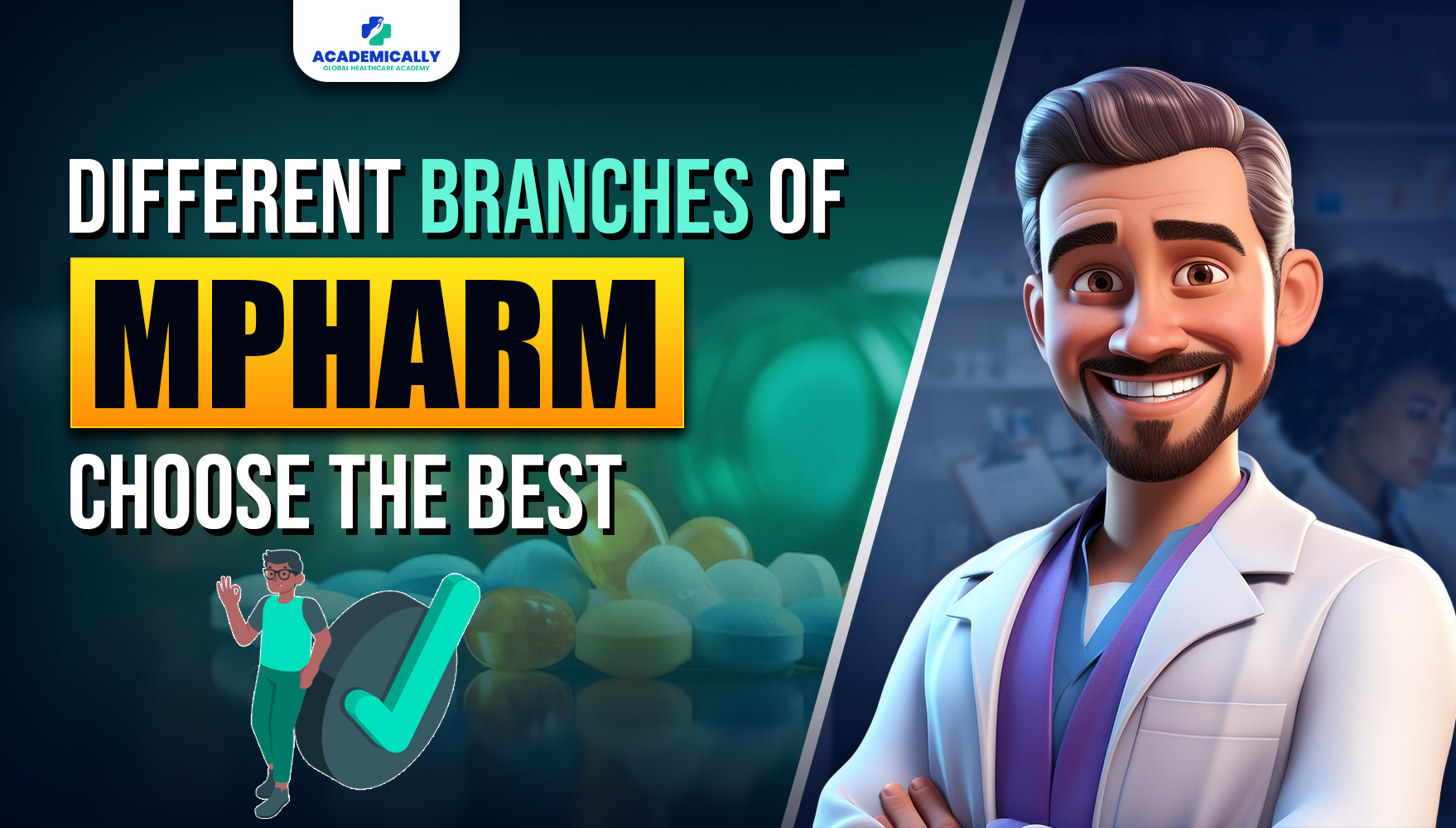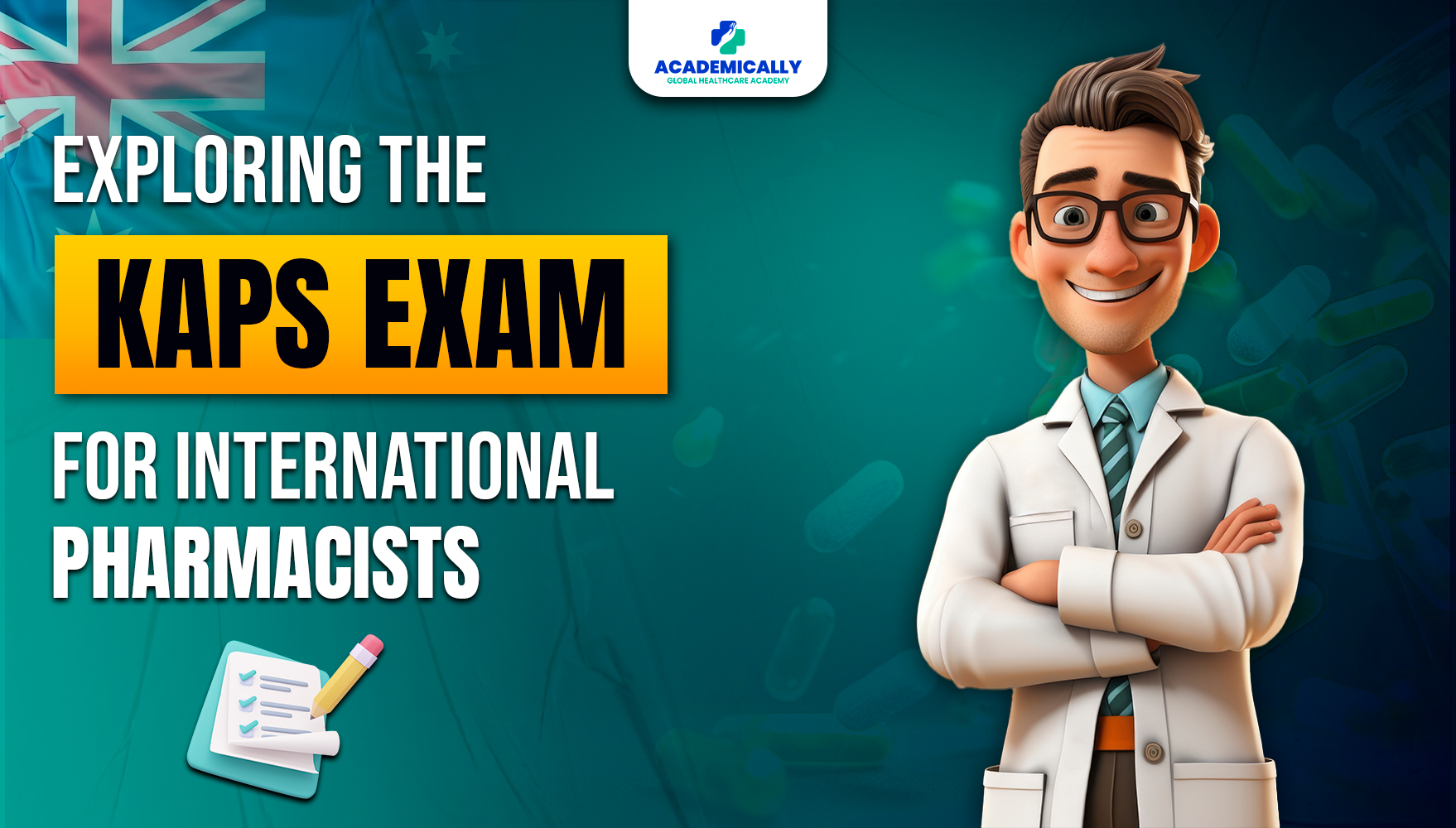Specialisations
M. Pharmacy is a two-year course that you can pursue after completing your B. Pharmacy degree with at least 50% marks.
During this program, you have the opportunity to specialise in various fields related to pharmacy. These specialisations cover a wide range of areas within the pharmaceutical industry, allowing you to focus on specific aspects of drug development, manufacturing, regulation, and patient care.
Some of the common specialisations offered in M. Pharmacy programs include:
MPharm in Pharmaceutics
Pharmaceutics focuses on the development, manufacturing, and formulation of pharmaceutical products. Graduates specialising in pharmaceutics are equipped with the knowledge and skills required to design and produce medications in various dosage forms, ensuring their safety, efficacy, and stability.
Syllabus
The main subjects covered under MPharm (Pharmaceutics) are:
- Modern Pharmaceutical Analytical Techniques
- Drug Delivery System
- Modern Pharmaceutics
- Regulatory Affairs
- Molecular Pharmaceutics (Nano Tech and Targeted DDS)
- Advanced Biopharmaceutics & Pharmacokinetics
- Computer-Aided Drug Delivery System
- Cosmetic and Cosmeceuticals
- Research Methodology And Biostatistics
Job Options
The completion of M.Pharm (Pharmaceutics) makes students competent enough to work in the following sectors:
- Formulation Scientist
- Pharmaceutical Manufacturing Engineer
- Dosage Formulation Specialist
- Quality Control Analyst
- Lecturer
- Medical Transcriptionist
MPharm in Pharmacology
Pharmacology explores the interactions between drugs and biological systems, studying how medications affect the body and how the body metabolises drugs. Pharmacologists play a crucial role in drug discovery, development, and clinical trials, contributing to advancements in healthcare and medicine.
Syllabus
The main subjects covered under MPharm (Pharmacology) are:
- Modern Pharmaceutical Analytical Techniques
- Pharmacological & Toxicological Screening Methods
- Cellular & Molecular Pharmacology
- Principles of Drug Discovery
- Clinical Research & Pharmacovigilance
- Experimental Pharmacology
- Advanced Pharmacology
Job Options
The completion of M.Pharm (Pharmacology) makes students competent enough to work in the following sectors:
- Clinical Pharmacologist
- Pharmacokinetics Researcher
- Drug Safety Specialist
- Toxicologist
- Academic Researcher
- Analytical Chemist
- Biomedical Scientist
- Clinical Research Associate
- Clinical Scientist, Biochemistry
- Clinical Scientist, Immunology
- Research Scientist (Life Sciences)
- Research Scientist (Medical)
MPharm in Medicinal Chemistry
Medicinal chemistry involves the design, synthesis, and optimisation of pharmaceutical compounds. Medicinal chemists work closely with pharmacologists and other experts to develop new drugs or improve existing medications, aiming to enhance their therapeutic effects while minimising side effects.
Syllabus
The main subjects covered under MPharm (Medicinal Chemistry) are:
- Advanced Systemic Pharmacology
- Advanced Organic Chemistry & Spectroscopy
- Formulation Development & Technology
- Herbal Technology & Nutraceuticals
- Quality Assurance, Biostatistics & Computer Applications
- Advanced Instrumental Methods
- Advances in Biopharmaceutics and Pharmacokinetics
- GMP and Pharmaceutical Process Validation
- Cellular & Molecular Biology
- Novel Drug Delivery Systems
Job Options
The completion of M.Pharm (Medicinal Chemistry) makes students competent enough to work in the following sectors:
- Medicinal Chemist
- Synthetic Organic Chemist
- Computational Chemist
- Drug Design Scientist
MPharm in Pharmacognosy
Pharmacognosy studies natural products derived from plants, animals, and microorganisms, exploring their medicinal properties and potential applications in healthcare. Pharmacognosists play a vital role in drug discovery and development, harnessing the therapeutic potential of natural compounds.
Syllabus
The main subjects covered under MPharm (Pharmacognosy) are:
- Modern Pharmaceutical Analysis
- Advanced Pharmacognosy
- Phytochemistry
- Medicinal Plant
- Biotechnology
- Phytochemistry
- Development and Formulation
- Intellectual Property Rights & Regulatory Affairs
- Herbal Product
- Development and Formulation
- Entrepreneurship Management
Job Options
The completion of M.Pharm (Pharmacognosy) makes students competent enough to work in the following sectors:
- Natural Product Researcher
- Pharmacognosist
- Ethnobotanist
- Herbal Product Development Specialist
MPharm in Pharmacy Practices
Pharmacy practices focus on the operational and clinical aspects of pharmacy practice, including medication dispensing, patient counselling, medication therapy management, and pharmaceutical care services. Pharmacists in pharmacy practices are crucial in promoting medication safety and optimising patient outcomes.
Syllabus
The main subjects covered under MPharm (Pharmacy Practices) are:
- Clinical Pharmacy Practice
- Pharmacotherapeutics
- Hospital & Community Pharmacy
- Clinical Research
- Principles of Quality Use of Medicines
- Clinical Pharmacokinetics and Therapeutic Drug Monitoring
- Pharmacoepidemiology & Pharmacoeconomics
Job Options
The completion of M.Pharm (Pharmacy Practice) makes students competent enough to work in the following sectors
- Community Pharmacist
- Hospital Pharmacist
- Clinical Pharmacy Specialist
- Pharmacy Manager
- Clinical Research
- Medical Colleges
- Medical Writing
- Community Pharmacy
- Pharmacovigilance
- Quality Control
- Sales
Lesser Known Specialisations
Some of the lesser known specialisations offered in M. Pharmacy programs include:
Biopharmaceutics: Examines how drugs' physical and chemical properties affect their behaviour in the body, aiding in optimising drug delivery systems.
Drug Regulatory Affairs: Ensures compliance with regulations governing drug development, manufacturing, and marketing, crucial for obtaining approvals and maintaining compliance.
Pharmaceutical Biotechnology: Integrates biotechnology with pharmaceutical sciences to develop biopharmaceuticals and personalised medicine, driving advancements in healthcare.
Clinical Pharmacy: Focuses on direct patient care, optimising medication therapy outcomes through services like medication management and patient education.
Drug Discovery and Development: Identifies new drug targets, screens potential candidates, and conducts preclinical and clinical testing, translating scientific discoveries into therapies.
Master of Public Health (MPH): Complements MPharm by addressing public health challenges and contributing to health promotion and policy development.
Pharmaceutical Administration: Manages supply chain, regulatory compliance, and healthcare delivery for efficient pharmaceutical products and services.
Pharmaceutical Analysis and Quality Assurance: Ensures pharmaceutical compounds' purity, potency, and quality through qualitative and quantitative analysis.
Pharmaceutical Market & Management: Develops marketing strategies and manages sales teams to drive market growth and commercial success of pharmaceutical products.
Pharmaceutical Technology: Innovates drug formulation and delivery systems, driving pharmaceutical manufacturing and patient care advancements.
Phytopharmaceuticals and Natural Products: Studies medicinal plants and natural compounds for their therapeutic potential in disease prevention and treatment.
Quality Assurance: Ensures compliance with pharmaceutical manufacturing and distribution standards, monitoring product quality throughout production.
Also Read: KAPS Exam VS M.Pharm
Final Words
The diverse specialisations within MPharm offer many opportunities for aspiring pharmacists to pursue their passions and make meaningful contributions to the pharmacy field. Whether you're interested in drug discovery, clinical practice, regulatory affairs, or pharmaceutical management, there's a specialisation that aligns with your interests and career goals.
By exploring the various branches of MPharm and gaining in-depth knowledge and skills in your chosen specialisation, you'll be well-equipped to embark on a rewarding career journey in pharmacy, positively impacting patient care, public health, and healthcare innovation.




